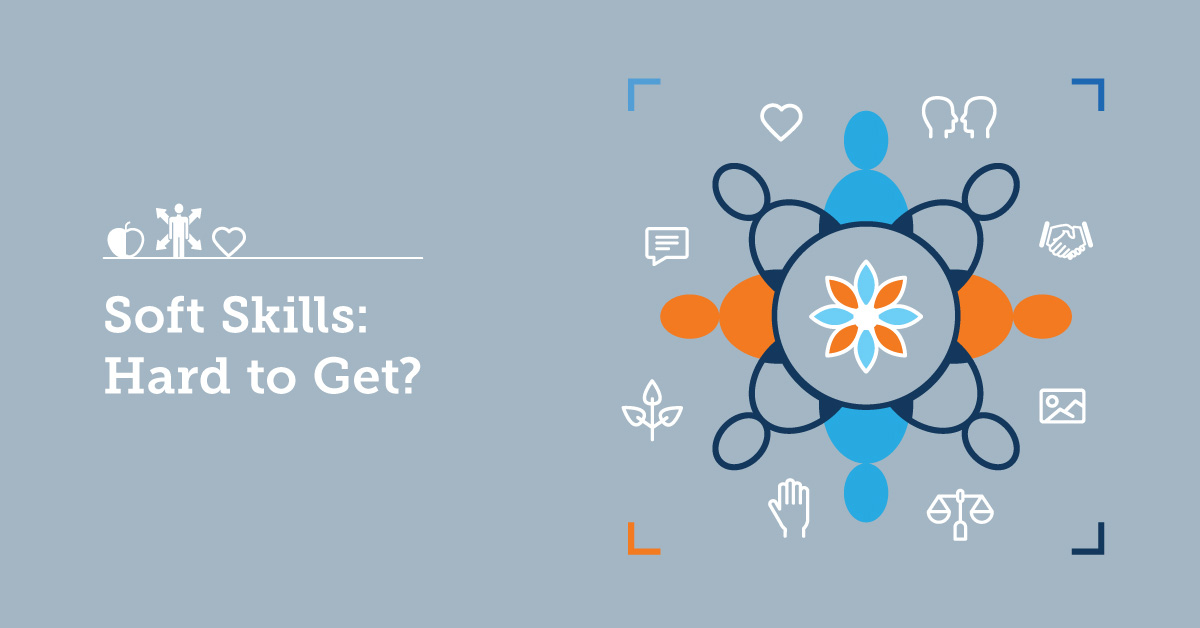Matilda is an A-player salesperson in her organization. She always calls customers with the biggest smile on her face, and in return, they leave her top reviews. She’s never missed her quotas. She cheers on her colleagues and they all praise her vibrant personality.
Her manager, Agatha, wishes she could train the rest of the sales team to be just like Matilda. “Is there a course for learning how to be an extrovert?” she wonders.
We would all love to have a whole team of Matilda, and Agatha’s question may strike a chord. Is there such a thing as personality training?
It turns out that the more important question is whether personality is what you should be training for. Personalities come in all shapes and sizes—and each has its strengths. But ultimately it’s skills and results that determine success. Where personality fits into that is a more complicated discussion.
Does personality matter at work?
Most people recognize the value of training for technical or hard skills. And that’s often what we think of when we talk about employee development. If you need to upskill employees on things like processes or technical know-how, there are usually straightforward training solutions.
But what about personality training? When it comes to personality skills (or soft skills), the way forward is less clear. Interpersonal capabilities like fitting in with company culture, working well with teammates, and reading others are equally important parts of the job. In fact, experts frequently tout the idea of hiring for personality first, skills second.
Regardless of which you’re thinking to prioritize, you want to help employees be proficient in what they do. That includes how they work with customers, partners, and coworkers. And this doesn’t just boil down to personality.
Build well-equipped teams with TalentLMS
The training platform that users consistently rank #1.
Easy to set up, easy to use, easy to customize.
Personality traits: Nature or nurture?
Can the traits that make for good teamwork or leadership be learned, or are they just an inherent part of who people are? For years, psychology has grappled with whether human behavior is determined by genetic or environmental factors.
Some theorize that our genes carry the information that drives how we respond to things. Others say that our behavior is a matter of habit developed by our experience and observation throughout life.
In our example, are the skills that make Matilda a top performer inherent? Or, are they the result of training and practice? Put differently, should her manager, Agatha, hire people who already have those skills? Or, should she look for ways to grow those abilities to her team members?
When it comes to the skills that help people work well with others, there may be some of both at play.
Personality in the workplace
The truth is, some employees may be naturally prone to successful behaviors, but it’s not the personality you should focus on. Consider instead the results they’re getting and the skills they’re using to get them.
Let’s return to Matilda. She exhibits traits her manager wishes all her employees had. But that doesn’t mean Agatha should look for courses that teach “how to be an extrovert.”
Instead, she should look for courses that have to do with the specific skills Matilda is using on the job. It isn’t an aura of personality that has people giving her good reviews. It’s the thoughtful questions, the ability to respond to client concerns, and her focus on the team.
Those characteristics may be part of Matilda’s personality—it’s hard to say. But what is clear is that she uses her abilities at work because they help her succeed.
Focus on results
Replicating Matilda’s success isn’t just about personality. It has to do with understanding what makes for successful interactions. Then ensuring employees are both able and motivated to do what it takes to get there.
To reach Matilda’s level of success, Agatha needs to first focus on results. That means more than just checking the boxes on personality. Matilda may be outgoing and personable, but that’s not what Agatha’s happy about.
Matilda’s keeping clients satisfied, hitting her numbers, and bringing the team together. Those results are what Agatha really wants to replicate.
Then, match results with skills
Once you know which results matter to you, look at the skills that drive them. In Agatha’s case, what is Matilda doing that helps her achieve the desired results? She’ll have a much easier time finding training on those particular skills than on altering personalities.
When employees have the skills to succeed and understand the results they drive, they’re much more likely to be motivated to use them. That understanding and motivation are the keys to getting them on board. Matilda has the skills, and she uses them because they drive results that matter to her.

Personality traits vs. soft skills
The skills Matilda’s exhibiting beyond her technical abilities are known as soft skills. These are competencies that relate to how people work. Although soft skills remind us of personality traits, those two aren’t identical.
Many soft skills are particularly focused on how people work effectively with others—think things like communication, negotiation abilities, team spirit, and cultural awareness.
And these skills definitely can be learned.
To bring other employees up to the same level of performance as someone like Matilda, know what interpersonal skills will best serve their job. Then offer soft skills training to help them understand why and how to use these skills.
Meet TalentLibrary™
A growing collection of ready-made courses that cover the soft skills
your teams need for success at work
![]()

You’ll find that different employees express the same soft skills in different ways. And that’s because they have different personalities. But different personalities are important to your success.
Why different personalities matter
Consider another employee, Jenny. Just like Matilda, she reaches her sales quotas consistently and is a pleasure to work with. However, she has a different approach to work. She’s quiet and doesn’t make a big deal of her accomplishments. And she’d rather spend her lunch break on her own.
This is nearly the opposite of Matilda’s outgoing, social personality. Is this a bad thing? Not at all. Jenny produces the same good results. The team wouldn’t be as successful if Agatha decided only to employ those she labeled extroverts.
“Come as you are”
Putting a label on someone’s personality is subjective and can be limiting. When you say your team prefers extroverts and then label someone like Jenny as an introvert, you imply that she’s not a good fit.
The risk of focusing on personality traits, as opposed to skills and results, is that you end up creating homogeneous teams. And when there’s no diversity in the team, you miss out on fresh ideas and innovative solutions.
Instead, focusing on skills and results allows you to have a wide range of personality traits, and thus strengths, on your team. For example, Matilda’s outgoing nature and ability to rally the team might position her to be a good team leader. On the other hand, Jenny’s calm attitude and approach to her work could serve her well as a senior salesperson responsible for solving complex issues.
Training for all (personality types)
You can help employees grow in their roles beyond hard skills. The key is to build an inclusive workplace that takes all personality types into account. Training has a vital role in that.
With a solid soft skills training strategy, you help employees grow the people skills they need to work together. Then, you can allow their individual strengths to drive their work. In an inclusive and skill-supportive workplace, all of the Matildas and Jennys can thrive. And they’ll help your organization thrive, too.
| Tags: Soft Skills Development



